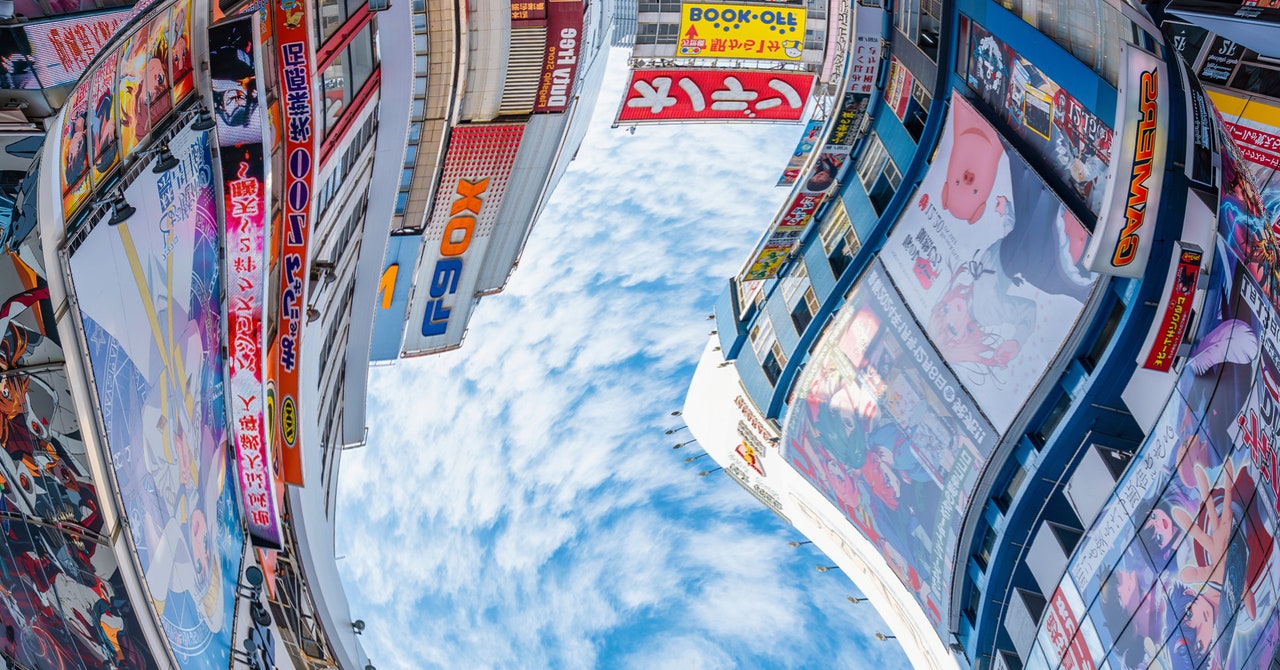If you’re a racing game enthusiast, this stop will be delightful for you. The game center’s history as a Sega arcade leaves so many cool classics available to ride, from Manx TT Super Bike machines to a Rad Mobile game that you play while seated inside a mini car. I could have spent at least an hour just bouncing between the different steering wheels of these retro machines.
Compared to when we visited the Namco game center earlier in the day down the street, the selection of rhythm games—where tapping controllers to the beat earns you points—were fairly similar. Although in Gigo 3 we were able to play multiple rhythm games without feeling the need to move due to other patrons waiting in a line behind us. It was delightful trying out all of the rhythm experiences for the first time, and my personal favorite was Sega’s Maimai machine. I was astounded watching nearby players smash all of the eight buttons at precisely the right time along with the music, swiping fingers across the screen as they rack up combos—I was content to play on the approachable, easy difficulty levels, rather than risk breaking out in a wicked sweat.
Another enjoyable experience in Gigo 3 for travelers is the picture booth section. While it’s primarily filled with teenage girls perfecting their makeup, using hair irons for touchups, and trying on crunchy blonde wigs, we had a blast taking photos in the booths and couldn’t stop laughing as the software warped our facial features out of proportion until we looked like ghostly aliens. One booth we tried even had a horror theme with a light narrative as you hit the poses.
We went hard at the games and never went over 5,000 yen (around $33) at any of the arcades in Tokyo. Overall, our experience at Gigo 3 was budget-friendly and magnetic.
If You’re Traveling With Kids
After riding an outdoor escalator to reach the entrance of 1-chome Playland, located on Tokyo’s artificial island of Odaiba, I was surrounded by nostalgic neon hues and the most mechanical arcade games I’d seen all trip. Yes, it had a few other options for games, but the main attraction here was an assortment of vintage machines, often with some kind of interactive, mechanical element. Despite the age and public use, a majority of the games here were in great shape.
The space isn’t huge, but around each corner we bumped into unique experiences and happily spent fistfuls of yen coins. I used a tiny chef’s skillet to mash rodents as target lights flashed across the screen. My partner and I got a bit too competitive spinning the cursors and trying to win our ping-pong soccer game. I almost landed three pinballs in a row playing the Sailor Moon-themed tic-tac-toe.
At 1-chome Playland, I saw many families with young children as well as couples out on aesthetic dates. The location is easy to overlook, right next to other family-oriented options like the Legoland Discovery Center and Tokyo Joyopolis, but it’s honestly worth the train ride by itself. We spent an hour and a half trying out machines, and probably could have spent another 30 minutes on a less busy night.
Just be forewarned, any family outing at this arcade is almost guaranteed to end with a trip to some nearby ice cream shop on the way back to the hotel. It just feels right.
Looking for other Japanese game centers worth visiting in Tokyo? We also enjoyed our time at Namco, HEY Taito, and GiGO #1—all in Akihabara and only a few blocks apart. For a more intimate experience, head to Takadanobaba, where the Mikado Game Center has a solid selection of retro machines, and the nearby Natsuge Museum is a fantastic stop for pinball fanatics.

